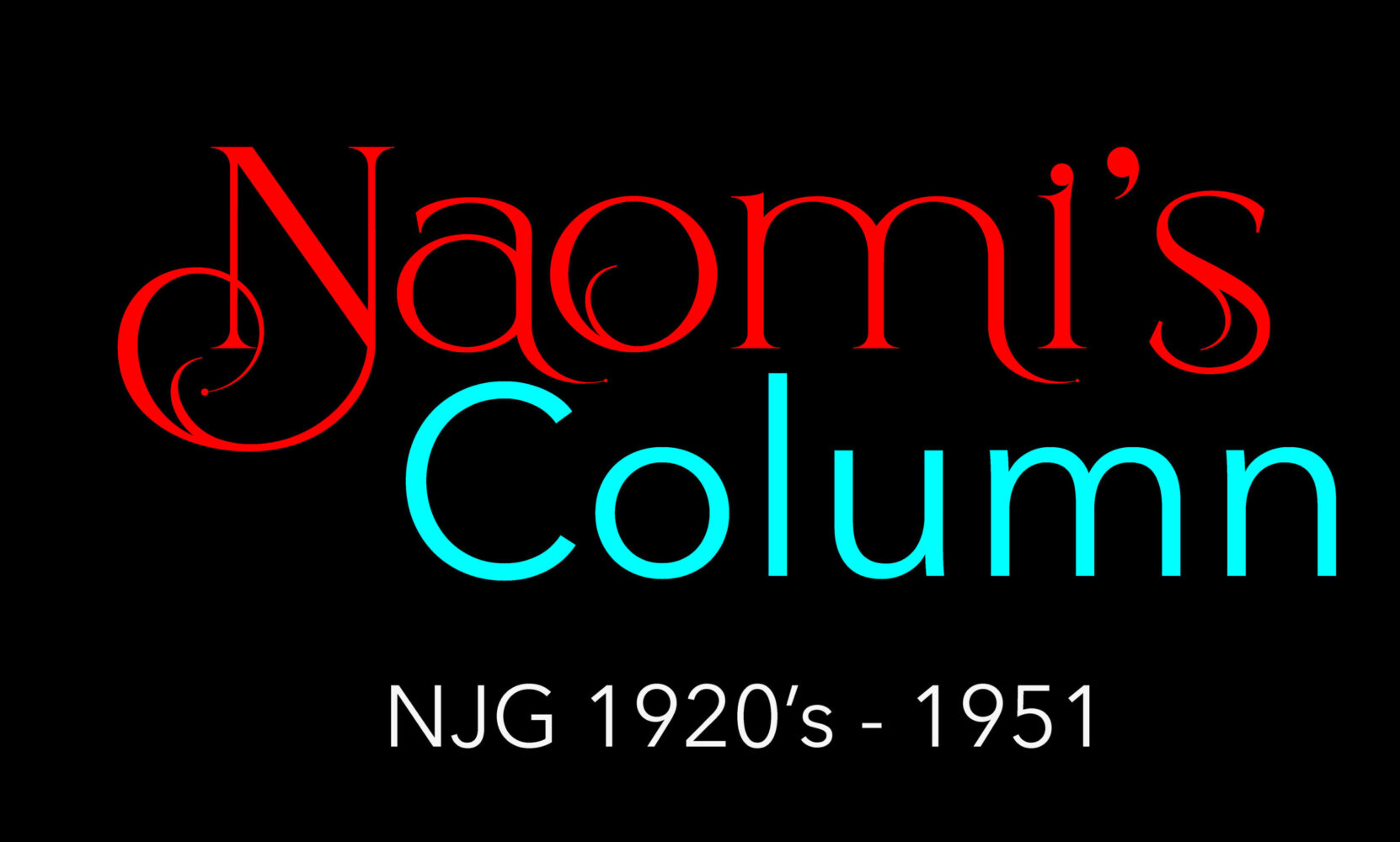Hampton Roads Community News
Columnist Naomi to Single Women: “All Men Jive Women”

“Naomi’s Advice”
___________________________________________
“Naomi’s Advice” Appeared in The Guide From 1920s-1951
Part Two
Columnist Naomi to Single Women: “All Men Jive Women”
During the 1940s the Guide carried a column titled, “Naomi’s Advice to Girls, Women, and Men: Are You Worried About Your Love Affairs? Write Naomi For Advice.” Naomi’s biggest readership came from young, single girls and women–about 55 to 60 per cent of all the letters in a sample from 1941 to 1951. Most were looking for advice on dating and marriage. What did Naomi tell them?
These young women—mostly aged 15 to early 20s—faced a world with at least two important challenges: First, the “revolution in manners and morals” that began in the 1920s was a rejection of older strict rules about how men and women were to relate. Before, men used to “call” at women’s homes, but by the 1920s young Americans were dating. By going out for entertainment beyond the home, young women could partially escape from traditional parental and community control, but they were still judged by those older moral standards, which often remained quite strong in African-American communities. (Vivian Edmonds, a student in the 1940s at (the then named) North Carolina College for Negroes in Durham, recalled that female students could not go off campus without permission. “It was like having a million parents—you couldn’t breathe,” she said.)
Second, in the world of dating, and especially during the World War II years and after, young Black men in Norfolk had more money from serving in the armed forces or from jobs in war industries, and that gave them more leverage in dating.
Naomi recognized that her young female readers needed support to deal with these challenges. She believed that obeying parents and upholding traditional morality would protect them—“always be the little lady that you are now,” she told one. But she also tried to strengthen young women’s hand by urging them to act a little more like men and “play the field” in dating—not to get too involved with one man too early.
When one letter writer reported fighting with her boyfriend, she said, “I think you are making a big mistake by not allowing other boys to visit you, because you are taking this boy too seriously. Make new friends . . . .” When one relationship didn’t work out, Naomi argued, “There is always another chance.”
But one of the most fascinating aspects of Naomi’s column was her attitude toward men. On the one hand, she did not question the idea that men were supposed to take initiative and be in charge. A female college student wondered whether she should tell a young man in her classes that she liked him. Naomi said no, because she might be “made a fool of”; it was unfeminine to be too forward.
Yet, on the other hand, Naomi did not hesitate to criticize men for taking advantage of women, by pretending to love them but not truly reciprocating, or by “running around.” “All men jive women,” Naomi told one. They are conceited and want to look like “Casanovas.” Women should be on guard. Men who drank too much or were jealous or violent also earned Naomi’s scorn; she warned young women to avoid them and said it was never good to marry such a man and hope to change him.
Naomi’s loudest complaints were against married men who had affairs with single women. “Worried” wrote to Naomi about whether she should believe her married boyfriend when he told her he did not love his wife and would divorce her. “You try to forget him,” Naomi answered, “because nine times out of ten these married men will make these promises which they have no intention of keeping.” “Any woman is a fool to lose time with a married man,” she told another. Although she also said such behavior was morally wrong, she seemed most concerned about the women being hurt.
Naomi was not a feminist in the modern sense because she did not criticize the whole system of male dominance. Other Black women in the 1940s did make those critiques—like Ann Petry, Gwendolyn Brooks, and Pauli Murray, who published articles in the Negro Digest condemning the notion that men should be the “lord and master” in marriage. Nevertheless, Naomi was much more outspokenly critical of men than most white advice columnists at the time and exemplifies a feisty spirit that may have inspired some of her young readers.
Do you have older relatives who told you about reading “Naomi” back in the World War II era? What did it mean to them? If you have any recollections or any information about Naomi’s actual identity, please e-mail the Guide at njguide@gmail.com and Christina Simmons at simmonc999@gmail.com.
In the last installment: How did Naomi advise married women?
Christina Simmons, a retired professor of history and women’s and gender studies from the University of Windsor in Canada, taught primarily American and Canadian women’s history and African American/Canadian history.














